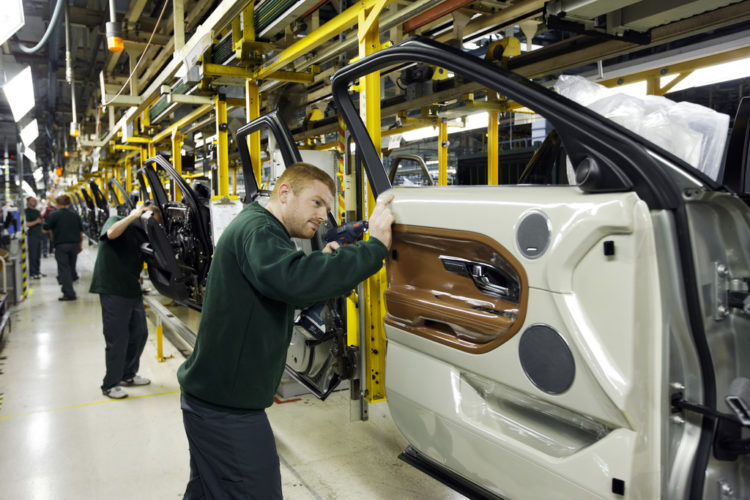Carmaker Jaguar Land Rover has unveiled plans to reduce carbon emissions across its business by 46% and reduce vehicle emissions by 54% by 2030. Tony McDonough reports

One of Liverpool city region’s biggest employers, carmaker Jaguar Land Rover (JLR), says it is looking to slash carbon emissions in its factories and its vehicles by 2030.
JLR employs around 3,700 people at its plant at Halewood in Merseyside assembling the Land Rover Discovery Sport and Range Rover Evoque models. It also helps support thousands of jobs in the wider North West automotive supply chain.
Owned by India’s Tata Motors, the company has already made a major commitment to the electrification of its vehicles. In February last year chief executive Thierry Bolloré said it would become a net zero carbon operation by 2039. It says its Jaguar range will be all-electric by 2025 with Land Rover following by 2030.
Now JLR says it will step up its efforts to reduce greenhouse gas emissions in its manufacturing process by 46% by 2030. It will also cut average vehicle emissions across its value chains by 54%, including a 60% reduction throughout the use phase of its vehicles.
READ MORE: Jaguar Land Rover demand at record levels
Approved by the Science Based Targets initiative (SBTi), JLR’s goals confirm its pathway to a 1.5°C emissions reduction in line with the Paris Agreement on climate change. It claims it meets the most ambitious goal set in Paris.
By the end of the decade, Jaguar Land Rover will reduce its direct greenhouse gas emissions across vehicle manufacture and operations by 46 per cent in absolute value compared to a 2019 baseline.
These targets represent JLR’s commitment to 2030, followed by a second-decade ambition for net zero emissions across supply chain, product, and operations by 2039, as part of its Reimagine strategy.
To achieve this, the company will decarbonise across design and materials, manufacturing operations, supply chain, electrification, battery strategy, circular economy processes, and up to end-of-life treatment.
To support its mission, the business has introduced the new role of sustainability director, appointing Rossella Cardone to drive its transformation and support François Dossa, executive director, strategy and sustainability.
Mr Cardone said: “Sustainability sits at the core of our Reimagine strategy, with the aim to achieve net carbon zero by 2039, as the creator of the world’s most desirable modern luxury vehicles.
“As we move from climate ambition into action, we are now embedding sustainability into the Jaguar Land Rover DNA to minimise our carbon footprint across our value chain. Science-based targets tell us how much and how quickly we need to reduce our greenhouse gas emissions, as well as keeping stakeholders informed about our progress.”
Alberto Carrillo Pineda, managing director, Science Based Targets at CDP, one of the Science Based Targets initiative partners, added: “We congratulate Jaguar Land Rover on setting science-based targets consistent with limiting warming to 1.5C, the most ambitious goal of the Paris Agreement.
“By setting ambitious science-based targets grounded in climate science, Jaguar Land Rover is taking action to prevent the most damaging effects of climate change.”

